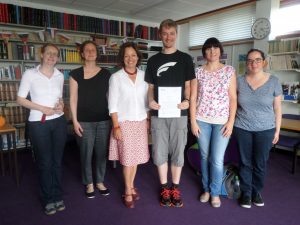So you’re not taking a language module with the Institution-Wide Language Programme (IWLP). Don’t have enough time? Bad school experience? Already know multiple languages? Whatever your reason, read on to find out why you should seize the opportunity to do a language module after all. We’ve spoken to students across the University to find out the most common reasons why they haven’t picked a language module alongside their main degree modules. Is your reason on the list? Let us change your mind!
1. I didn’t know I could do a language module!
Yes you can! Our modules are open to all students in all years, undergraduate and postgraduate. We offer 10 languages at multiple levels. To find out more, visit our website.
2. I don’t have enough time! I’ve already got enough to do!
Most of our students do the module for credit. Credit modules fit into your existing timetable and credit allowance, not on top. You effectively exchange a degree-related optional module for a language module.
The most common positive feedback we get from students is that they really enjoy the variety that the IWLP module gives them: the changes in pace of class, the class environment, peers, assessment and homework style. Students have fun in their classes and learn useful things every lesson, which makes them feel more motivated and less like they are working hard. In fact, a third of our students are busy finalists, like Bella.
Once you leave university, you will be busy working, and fitting in learning a new language from scratch will be hard – university is the best time to seize the opportunity while it still fits into your weekly timetable.
3. I didn’t like it at school! I wasn’t good at it at school!
At the IWLP, we cater specifically for non-specialist language learners, so we know how to make the course work for you and how to help you find what works for you. Our courses have been running for years with experienced teachers, with proven successful results – we have students of all abilities and empower them all to succeed.
Our classes are also capped at 20, which means that your teacher gets to know you quickly and can respond to your needs. Everyone in the classroom has chosen the module and is engaged and willing to learn, which improves the learning experience for everyone.
4. I already know multiple languages!
Amazing! 😊 Why not expand your horizons even further? Think of the new places you can visit and the new people you can meet. No-one has ever regretted learning a new language. Many of our own teachers are multilingual – some know as many as five or six languages. When it comes to language learning, the sky is the limit!
5. I don’t have any optional modules left!
Even if you don’t have optional modules left, you can take our modules as a non-credit student for a small fee. You do the same course, but it is additional to your full credit timetable. We have many non-credit students every year and they are just as successful as credit students. Find out more here.
Convinced? Visit our website to find out more.
Already picked your modules for next year? You may still be able to transfer onto one of our modules. Email us today: iwlp@reading.ac.uk
Or don’t have any optional modules available? You can still take a module non-credit for a fee: https://www.reading.ac.uk/iwlp/how-to-apply
Any questions? Email us: iwlp@reading.ac.uk








 Chris Flach, Second year student of Law with Legal Studies in Europe and German Studies, was awarded for his extraordinary enthusiasm in engaging with and supporting the Department of Modern Languages and European Studies. Throughout his two years at Reading, he showed his enormous interest, dedication and commitment for the German language in particular and the Department as a whole by promoting Modern Languages as a student ambassador, being involved in Outreach and Teach meet events, creating a departmental video workshop, playing a leading role in the German Drama Group and being actively engaged in all other extracurricular events and activities of German Studies. The Department has highly appreciated his outstanding support and is wishing him the best of luck for his year abroad at the University of Trier in Germany.
Chris Flach, Second year student of Law with Legal Studies in Europe and German Studies, was awarded for his extraordinary enthusiasm in engaging with and supporting the Department of Modern Languages and European Studies. Throughout his two years at Reading, he showed his enormous interest, dedication and commitment for the German language in particular and the Department as a whole by promoting Modern Languages as a student ambassador, being involved in Outreach and Teach meet events, creating a departmental video workshop, playing a leading role in the German Drama Group and being actively engaged in all other extracurricular events and activities of German Studies. The Department has highly appreciated his outstanding support and is wishing him the best of luck for his year abroad at the University of Trier in Germany.